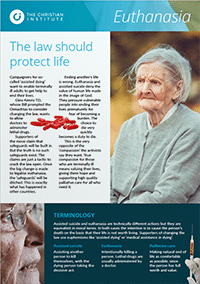Two scientific developments in the screening of embryos have prompted further criticism that Britain is sliding towards allowing designer babies.
Last week a baby was born without a gene which could increase chances of breast cancer and scientists announced new findings which could open the way for embryo screening of genes which may cause autism.
Screening processes involve testing embryos to see whether they carry defective genes. If they do they are destroyed. If they do not, they may be implanted in their mother’s womb.
Critics say screening embryos raises serious ethical problems and widens the door to the possibility of creating flawless designer babies.
The baby born last week free of the breast cancer gene BRCA1 underwent the controversial screening technique Preimplantation Genetic Diagnosis (PGD).
The parents, who wish to remain anonymous, feared their children would be born carrying BRCA1 after three generations of the family had been affected.
Carriers of the BRCA1 gene have a 50 to 80 per cent chance of developing breast cancer. PGD allowed them to screen embryos to choose and implant only those which did not carry the gene.
PGD has been described as a slippery slope to developing designer babies. The process is often criticised because it involves discarding otherwise healthy embryos because they carry a ‘faulty’ gene which may or may not develop into a medical condition.
Josephine Quintavalle, of Comment on Reproductive Ethics (CORE) said: “The birth of this child is a cause for celebration, as every birth should be. But we also need to consider the embryos who were not given the chance to live. Those embryos were deemed inferior and rejected.
She advised: “We have to ask where all this is leading and we must not be afraid of confronting the word ‘eugenics’.”
Permission for this type of screening is given by the Government’s fertility watchdog, the Human Fertilisation and Embryology Authority.
But she warned: “The goalposts have already moved so quickly. To start with, PGD was used only where the child would definitely suffer from a lethal disease; then the disease had simply to be acknowledged as serious.
“Now we are picking embryos based on a percentage chance of them developing conditions later in life which we are already capable of treating. There is a real chance the discarded embryos would not have developed breast cancer at all.
“Using PGD to screen for the BRCA1 gene is not a cure for breast cancer. It is simply a process of discarding those embryos which might possibly develop the disease.
“We need to consider what genetic defects we will screen for next. If a parent is told we can choose an embryo which will not develop asthma, then the likelihood is they will opt for that, or any other perceived defect they are offered the chance to screen for.
“Questions have to be asked, too, about the long-term effects of PGD biopsy on the embryo? What effect might this have later on as the child grows up?”
“People need to face the true complexities of these procedures. Ethical cures for cancer or other genetic diseases will not be achieved by eliminating the carriers”, she concluded.
PGD is currently used to screen for diseases including cystic fibrosis and Huntington’s disease. It is thought that around 1,000 babies have been born after PGD.
Scientists are currently working on further tests which would allow screening for other genetic conditions including Alzheimer’s disease.
Scientists at Cambridge University also announced a discovery which may in future enable parents to screen their unborn babies for autism.
Critics say that the mounting advances in embryo screening will only add pressure on parents to have an abortion.
A spokesman from Catholic Bishops’ Conference of England and Wales said: “The debate prompted by the possibility of genetic testing for autism in the womb needs to be channelled creatively.”
He warned: “What our society is contemplating are the first steps of a truly revolutionary and inhuman path.
“The only way out is to rediscover the fundamental dignity and value of every human life from its first beginnings.”
“Without this firm moral bedrock, we are in grave danger of sliding inexorably towards a new eugenics,” he concluded.

